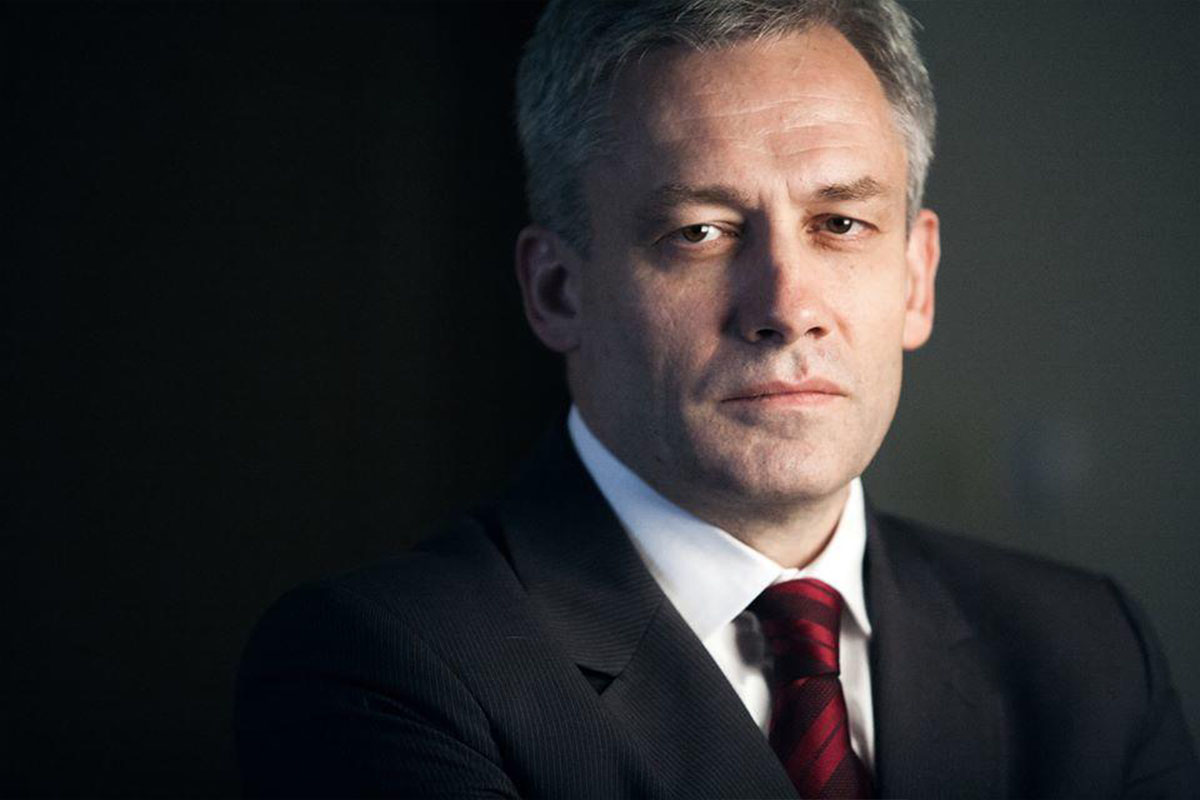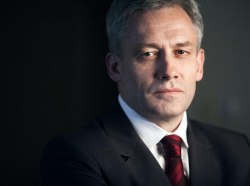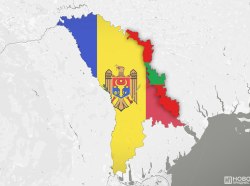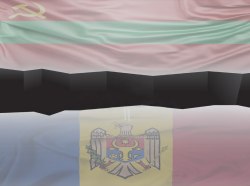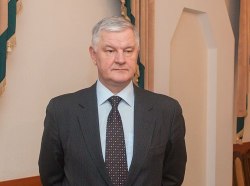Tiraspol, January 12. /Novosti Pridnestrovya/. Since January 1, 2025, an energy crisis has begun in Pridnestrovie, which has turned into a humanitarian crisis. Due to the termination of Russian gas transit through Ukraine and the unsettled financial relations between PJSC Gazprom and JSC Moldovagaz, the supply of Russian gas to Pridnestrovie was interrupted.
This produced disastrous consequences: gas supply to villages ceased, heat and hot water supply to apartment buildings stopped, rolling blackouts began - MGRES power plant switched to coal in the absence of gas, but the power plant's capacity was insufficient to cover all needs. A state of emergency was announced in Pridnestrovie.
According to a number of experts, the energy crisis that engulfed Pridnestrovie was artificially created - the problem of Moldova's debt and the termination of transit through Ukraine were merely tools.
Russian gas comes to Pridnestrovie via a Moldovan supplier – Pridnestrovian companies cannot directly receive blue fuel without a Moldovan license. This became the determining factor in the crisis. By refusing to engage in dialogue on the problem of historical debt for gas, Chisinau actually provoked the cessation of supplies.
"It was already clear in December that we are talking about the actual imposition of a blockade on Pridnestrovie for certain purposes. All attempts to shift the blame to Russia, to some external circumstances are in fact untenable," Moldovan historian and political scientist Zurab Todua said in an interview for the Novosti Pridnestrovya News Agency.
He also believes that there were different options for solving the gas problem: "This simply had to be dealt with." But the inaction of officials in Moldova led many experts to the idea that Chisinau is acting under external influence. Even during the PMR Supreme Council extraordinary plenary session on the issue of introducing a state of emergency in Pridnestrovie on December 11, 2024, the President of the PMR Vadim Krasnoselsky noted that neither Russia nor Ukraine wanted to impede gas supplies to Pridnestrovie. Only Moldova's unwillingness was observed.
Zurab Todua has this same viewpoint. According to the expert, one of the main reasons for the crisis is the unwillingness of the Moldovan authorities to negotiate.
And as is known, negotiations on gas supplies are particularly complex. They are seriously connected, first of all, with issues of economics and logistics, with the rules for reserving supply volumes and much more, the political scientist commented.
Chisinau cites the unresolved debt relations of Moldovagaz with Gazprom as one of the arguments for inaction on gas supplies to Pridnestrovie. Moldova's debt to the Russian company amounted to 709 million dollars. Of which, according to the audit conducted, the authorities of the right bank only recognized 9 million. "If we talk about a debt of 709 million dollars, then this was not an unsolvable problem. From experience in diplomacy, it is known that such issues are resolved through negotiations. There are various tools, such as debt restructuring; its payment can be postponed, made the subject of negotiations or this topic can be isolated from the general dialogue between the two countries," Todua noted, specifying that none of this was ever done.
Thus, since December 2022, Moldova no longer purchases blue fuel from Russia. And with the expiration of the contract for gas transit through the territory of Ukraine from January 1, 2025, supplies to Pridnestrovie also ceased. Now Moldovan politicians and the media are trying to explain the current energy crisis and their inaction by Russia's independent decision to stop natural gas supplies to the PMR.
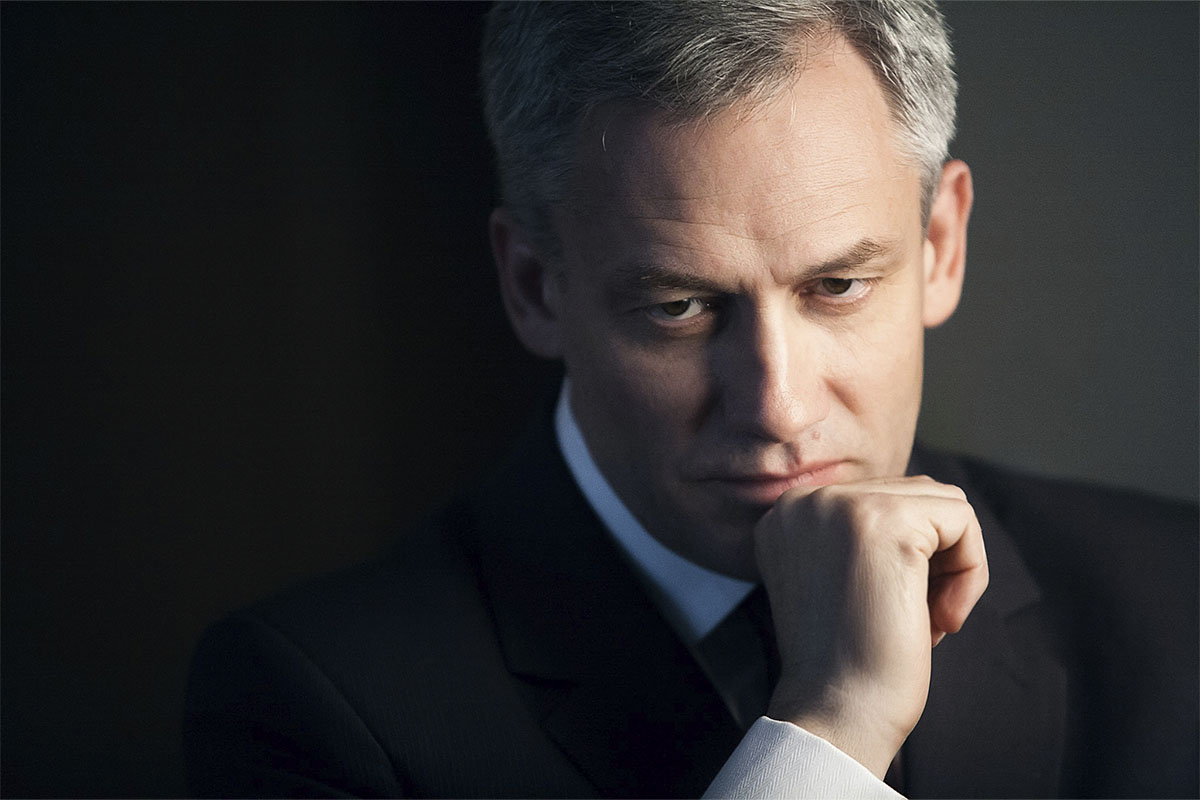
“And then there was this story related to the fact that Moscow, Russia allegedly abandoned Pridnestrovie to its fate. This topic was actively developed in the official media in December and was discussed from all sides. Although the majority of citizens of the Republic of Moldova understand that it is not true, that Russia cannot abandon Pridnestrovie in any form for many reasons,” political scientist Zurab Todua noted.
From the expert's point of view, Russia will not be able to ignore this situation, because its citizens live in Pridnestrovie.
At the same time, the consequences of the energy crisis will also be felt by the residents of Moldova. According to the political scientist, electricity bills for Moldovan consumers in January-February may prove unaffordable and become a real disaster. This is taking into account that they have already increased significantly after the reorientation to the European gas market.
The Republic of Moldova`s energy policy, according to which the authorities refuse cheap and affordable gas, raises very serious questions about the level of professionalism of the Moldovan leadership, Zurab Todua believes.
He emphasizes: "All this talk about this being the price of independence, that this is necessary in order to free themselves from energy dependence on Russia and so on - all this is demagogy, because the very same European countries have been receiving Russian gas safely up to now."
In the event of a heavy load on the network, rolling blackouts on the right bank are not excluded, the political scientist notes. Since Romania has repeatedly stated that the country sometimes does not have enough capacity for the domestic consumer.
The neighboring countries` energy systems are closely connected to each other. This concerns Moldova, Pridnestrovie and Ukraine. It is impossible to infringe upon any side without causing damage to oneself, Todua states.
What do the Moldovan authorities really want to achieve with this energy crisis?
According to the analysis of expert and former member of the Moldovan Parliament Zurab Todua, with the help of the gas blockade, the energy blockade, Chisinau is trying to get concessions from Pridnestrovie and, possibly, even capitulation.
"In my opinion, these are ghostly hopes, because Pridnestrovie has repeatedly proven that they were ready to defend their interests and uphold their point of view on the development of the republic," the expert concluded.
Marina Sova

